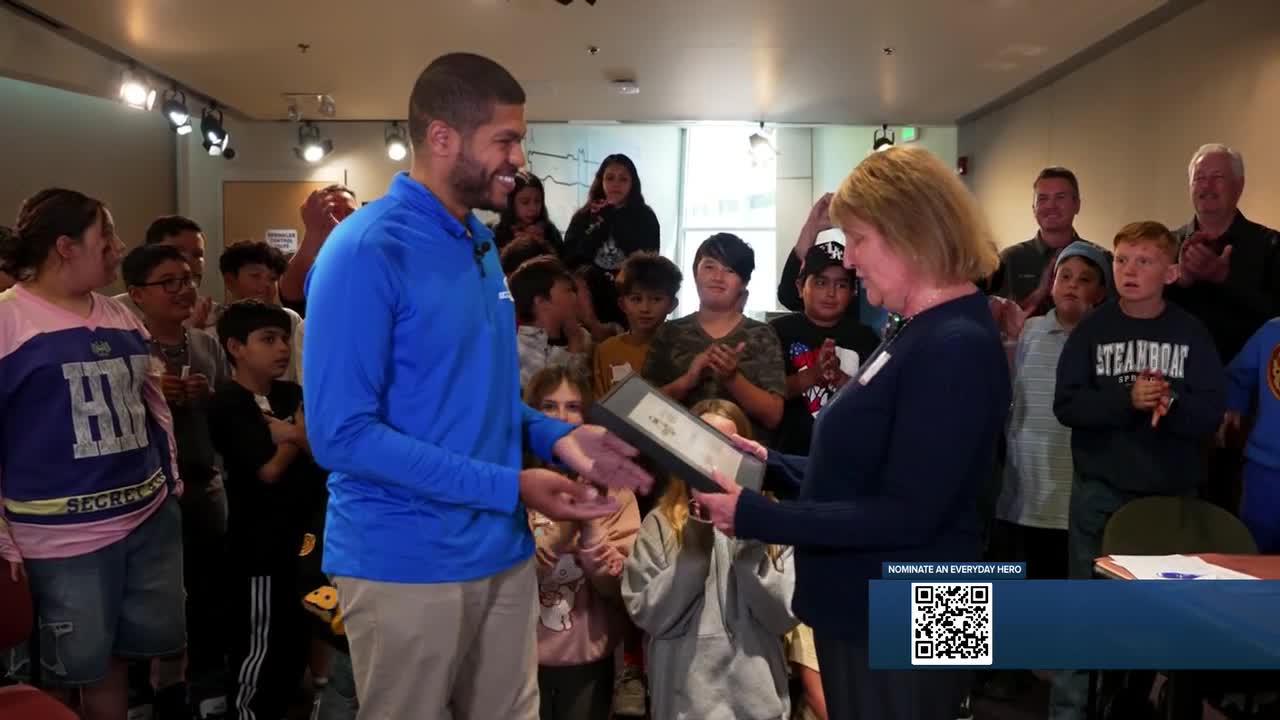DENVER — After three decades answering 911 calls for the Denver Police Department, April Overman found a new way to serve: Helping middle schoolers fall in love with science and meet the people behind the badge.
Overman, a retired Denver police dispatcher, now coordinates youth programs for the Denver Police Museum. Since 2019, she has volunteered hundreds of hours building hands-on lessons. The museum’s most recent program was during forensic science week. Students rotated through stations to dust for fingerprints, analyze fibers and ink, and conduct basic blood-typing as they work to solve a mock “diamond theft.”

“We just wanted to bring the kids in and have them meet the professionals,” Overman said. “Maybe this will help change their ideas and attitudes about the police. We all have different experiences, and they’re not all good — but we want to try to change that.”
On a recent visit, students from Summit Academy and Skinner Middle School filled the Denver Police District 1 station as they worked alongside current and retired personnel from the Denver Police Crime Lab. Forensic scientist Dustin Smith said the day is designed to connect curiosity with careers.
“A lot of kids might not be interested in being a police officer, but they might have an interest in science,” Smith said. “This is a great opportunity to show how science is used in police work and criminal justice.”
The museum’s CSI experience is part of a broader STEM and civics effort that includes modules on police communications, technology, law and order, and SWAT equipment. William Nagle, a retired DPD deputy chief who volunteers with the museum, called the CSI lesson “one of the best” children’s programs because it’s fully interactive.
“When we tell them they’re going to be the ones doing the tests and determining the results, it’s hands-on,” Nagle said. “They actually get a chance to do what CSI and lab personnel do.”
Ashley Sullivan, who helps coordinate the SPARK career-exploration programs with Denver Public Schools, said the museum partnership gives students access to real practitioners and pathways.

“Students are learning about different careers and aligning skills with what they learn at the forensic science lab,” Sullivan said. “They’re also building relationships with community partners.”
Overman’s path to youth programming began after retirement, when she was looking for a new role in public service. She joined the Denver Police Museum as a volunteer in 2016, later serving on the board and, by her estimate, donating about 800 volunteer hours a year.
“The police department has been my family for a lot of years,” she said. “I wanted to continue to give back and help improve community relations.”
Colleagues say her impact is felt in the details — the careful logistics, the mix of mentors at each station, and the way she engages students one-on-one.
“April is a great organizer. She makes things happen,” Nagle said. “She’s been instrumental in setting up youth programs that show we’re having a positive effect on the community — not only now, but in the future.”

For Overman, the work is about opening doors early. Meeting crime lab scientists and officers, she said, helps students see how evidence is collected, how conclusions are reached, and what steps they can take if they want to pursue similar careers.
“It gives them, at an earlier age, the chance to start thinking: ‘What do I need to do if I want to pursue this?’” she said. “I didn’t know this would be my calling at the museum, but it turned out that it is and I love it.”
From answering emergency calls to mentoring the next generation, Overman’s mission hasn’t changed. Her dedication to youth education and building community is far from over.
Denver7 features a different Everyday Hero each week. To nominate a hero in your life, click here.





